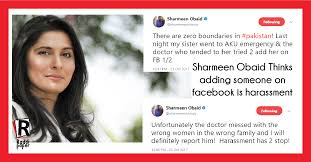Before the age of Facebook, I never thought I would go to someone with a ‘friend request’.
I have so many friends. We befriended without any friend request to each.
I made friends in school, college, university, workplace, conferences, workshops, weddings and so on.
How I’ve been making friends all along?
Not a complex method.
In life, we come across the people. We talk to each other. We exchange numbers. And we leave.
After some time, we again meet. We talk. And we leave.
Then we realise, well, we are friends.
Then comes Facebook.
Friend requests. Accept or delete.
Then there is an amazing option of ‘unfriend’.
How many times, in real life, I have used this ‘unfriend’ option?
Very rarely. Sometimes an altercation ends in anger. The friendship is compromised.
I just checked my Facebook page and learned that I’d 4,225 friends, 1,772 followers and 999 friend requests pending.
I am not a celebrity or a popular blogger or a famous byline-maker.
A floodgate of friend requests opened after my Facebook friend Rehan Allahwala announced two years ago that he would gift laptop to those reaching 500 common friends with him.
Since then, he has given away so many laptops.
I would qualify for the laptop if I accept all the pending friend request.
No. I will not.
It is not that they are not nice people.
In fact, I have so many friends, all nice people, who I first met on Facebook, and then in real life.
Rehan Allahwala is one of them.
I have just stopped accepting friend requests for I want to have more and more journalists in my Facebook circle.
I never gave a double thought to friend requests until came the issue of a friend request by a doctor to the sister of Sharmeen Obaid Chinoy.
Yes, the one Oscar-winning filmmaker.
Image: Courtsy http://raddipaper.pk/index.php/2017/10/24/sharmeed-obaid-thinks-adding-facebook-harassment/
In the age of social media, new situations are emerging, hence new rules.
Recently, her sister went to the Aga Khan University Hospital (AKUH) emergency ward for treatment. When she returned home and logged on her Facebook account, a friend request from the doctor who had examined her had landed in her account.
Outraged, Chinoy turned to her Twitter handle, calling it ‘zero boundaries in #pakistan!’
“I don’t understand how doctor tending to emergency patients thinks it is OK to take a female patient info and add her on FB!,” she thundered.
“Unfortunately, the doctor messed with wrong women in the wrong family and I will definitely report him! Harassment has 2 stop,” she warned.
The doctor has lost the job, we are told.
Does a friend request to a woman is tantamount to harass her?
Maybe yes. Maybe no.
In this case, the interaction between the doctor and the sister took place at a wrong place. The relation between a doctor and a patient requires certain ethics to follow.
Doctor friend Zulfiqar Ali (a Facebook friend) working in the US, supports Chinoy: “Yes she is right. Doctors are not supposed to send such requests. Also not at all disclose the identity of your patients. You do not even confirm if someone is your patient or not. In the USA, every state has own rules about having personal relations with patients. In Wisconsin, doctors are not supposed to have personal relations until two years after one is your patient. But rules for confidentiality are essentially forever unless one gets sued or one has written permission”.
Many think the doctor, who had no harassment record, was given a harsh punishment.
Does a friend request to a woman mean harassment?
Should an unethical friend request cost one their job?
Unprofessional norms by doctors, teachers, lawyers, journalist and other professionals dealing with delicate information often go untreated. Professional bodies also show leniency to their colleagues caught breaching ethical rules. Here the issue of misuse of data and social media warrant the formation of the code of conduct and their strict enforcement.
In the West, several journalists have lost jobs for their biased, tilted tweets or Facebook posts.
In Pakistan, journalists fight their political, ideological wars on Twitter and are never punished for such brazen shows of partiality.
A journalist’s most precious asset is their credibility. If their credibility is gone, nothing is left.
Coming back to doctor's issue, I think the doctor should be served on notice and if he repeats the offense, he should be paid dearly.
Meanwhile, women should use ‘Delete Request’ option judiciously and frequently whenever they receive any request from some stranger or unwanted person.
Let me revisit my Facebook friends list.
I have noticed some morons in my circle support IS, Daesh, Mumtaz Qadri and Taliban.
Let me click the ‘block’ option for them.

No comments:
Post a Comment